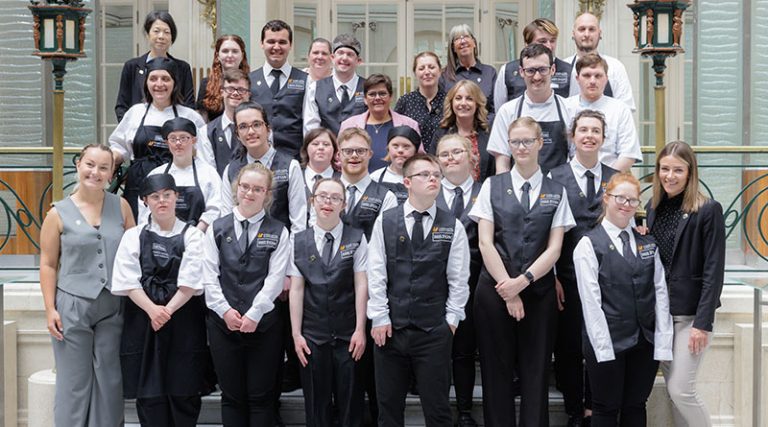A lack of visible role models in the workplace – particularly in customer-facing roles – is a major barrier to seeking employment for adults with learning disabilities such as Down’s Syndrome, Autism and Aspergers, new research has revealed.
In the UK, there are 1.5 million people with learning disabilities, but only 5% are currently employed.
Hilton’s survey of more than 500 people with learning disabilities and their carers* found that 79% believe businesses should do more to promote job opportunities and the benefits of inclusive hiring.
Doing so could have a significant impact on employment levels among those with learning disabilities, as three quarters (74%) would feel more confident applying for roles if they saw more people with similar disabilities in the workforce.
Despite this, just 16% of respondents who are in the workforce said they have a role model with a similar condition to connect with and learn from.
The study, released to mark Learning Disability Week (16th – 22nd June), highlights the importance of hiring, supporting and celebrating employees with learning disabilities, particularly in customer facing service roles across sectors such as hospitality and retail.
The findings underline the powerful ripple effect role models can have – not only on jobseekers, but their carers too. Yet such moments of visibility remain rare: only a quarter (25%) of carers say they have ever been served by someone with a learning disability. When they have, the impact is clear – 70% said it motivated them to help their dependent find fulfilling work, and three quarters (75%) said it made them realise the person they care for could be a role model to others.
This view is shared by the wider public. Hilton also undertook polling among more than 2,000 consumers, which found widespread support for greater inclusion of people with a learning disability in customer facing roles.
85% said that having more people with learning disabilities in these positions would inspire others to apply, while nine in 10 (93%) said it was important to see staff from all backgrounds in hospitality roles. Three quarters (75%) said there weren’t enough people with learning disabilities in such jobs.
Stephen Cassidy, senior vice president, UK & Ireland, Hilton, said:
“Representation matters – seeing people like yourself succeed at work builds confidence and opens doors to career opportunity. Our team members with learning disabilities contribute across a wide range of roles, from front-of-house positions like reception and concierge to behind-the-scenes work in kitchens, housekeeping, and revenue management. They bring unique strengths and a strong commitment that enrich our culture and elevate the guest experience. By providing the right support and fostering an inclusive environment where everyone feels valued, we empower individuals to reach their full potential and demonstrate that inclusion is a powerful driver of success in hospitality.”
This year marks the 10th anniversary of Hilton’s partnership with Aurora Foxes, a hospitality college and training hotel in Minehead that supports young people with learning disabilities. Over the past decade, the collaboration has provided 89 work placements, with 15 former students currently employed in roles with Hilton. A long-standing partnership with the Down’s Syndrome Association (DSA) has also enabled 52 work placements, with almost 40 team members currently working at Hilton through the DSA’s WorkFit programme.
To celebrate the valuable contributions of people with learning disabilities in the workforce, Hilton opened a pop-up tearoom at The Waldorf Hilton, London, on 16 June. The event featured a special performance from blind, autistic musical savant Derek Paravicini.





